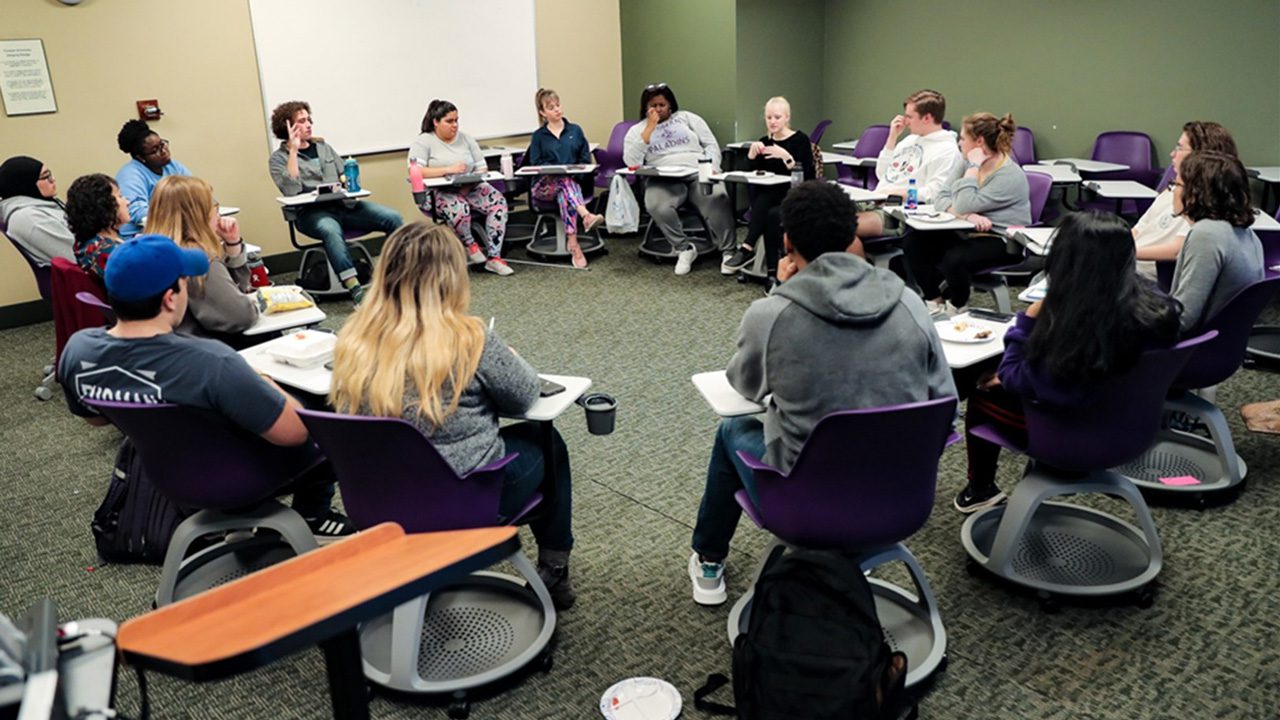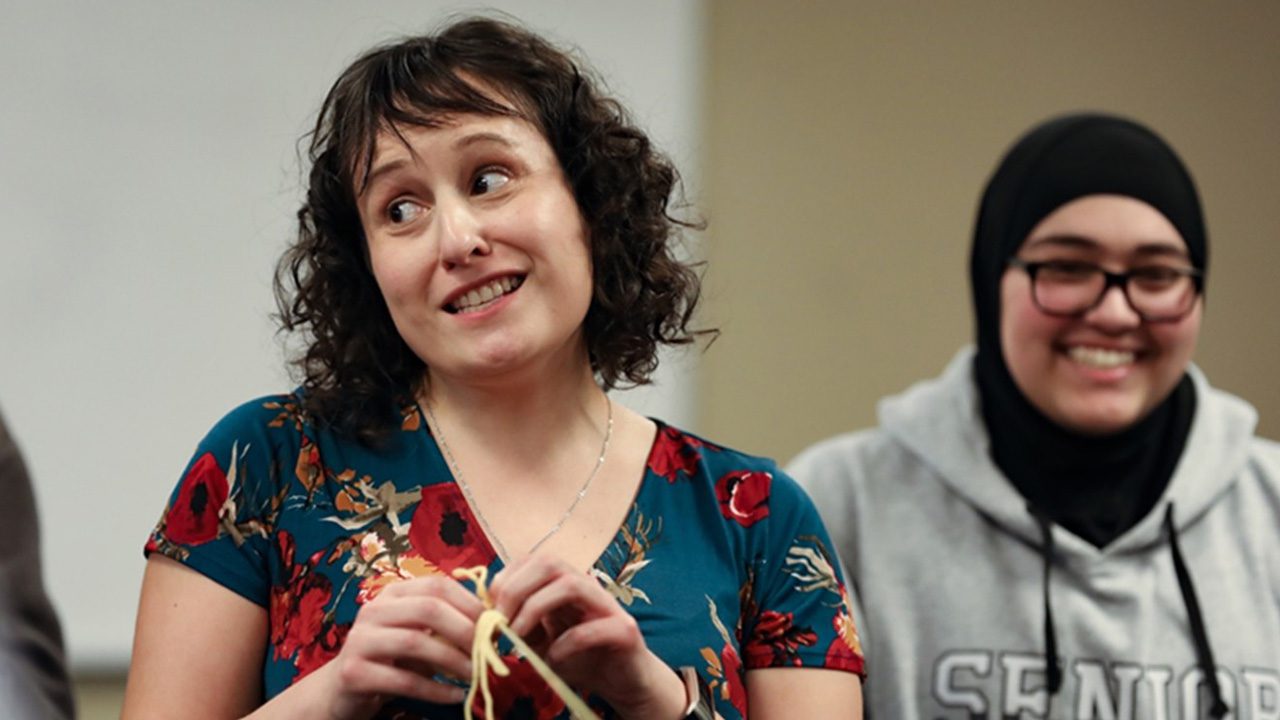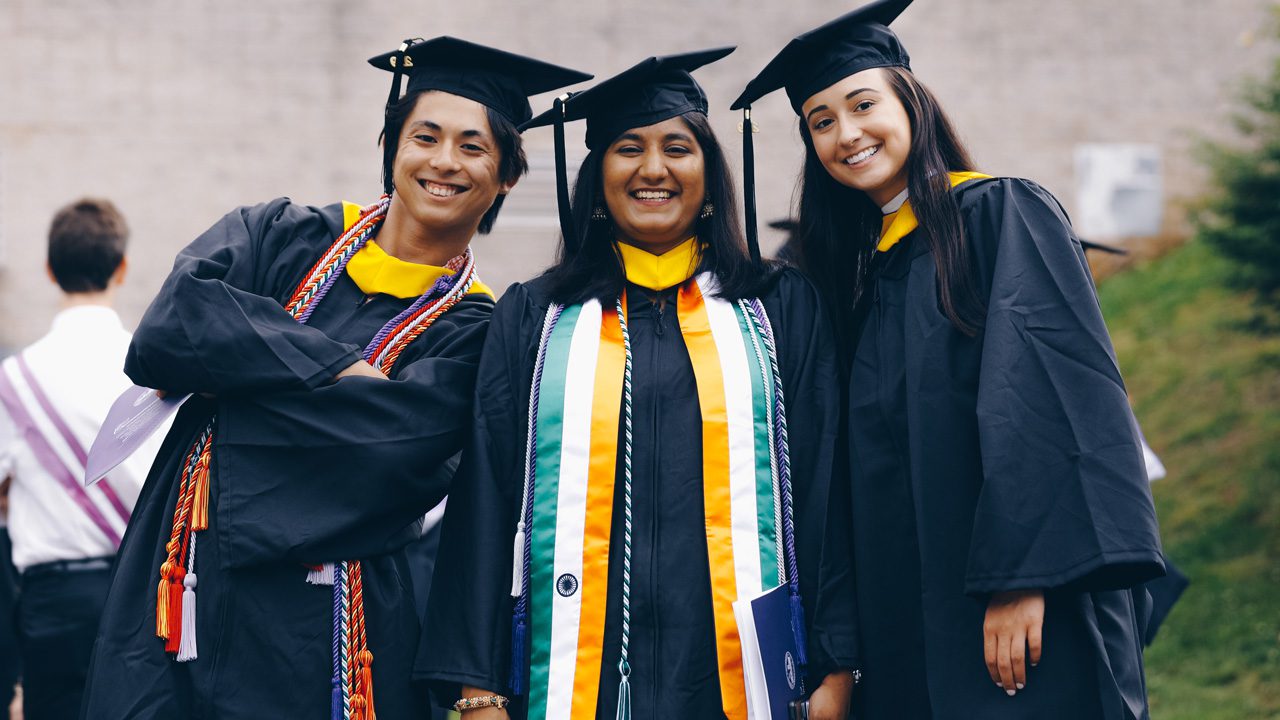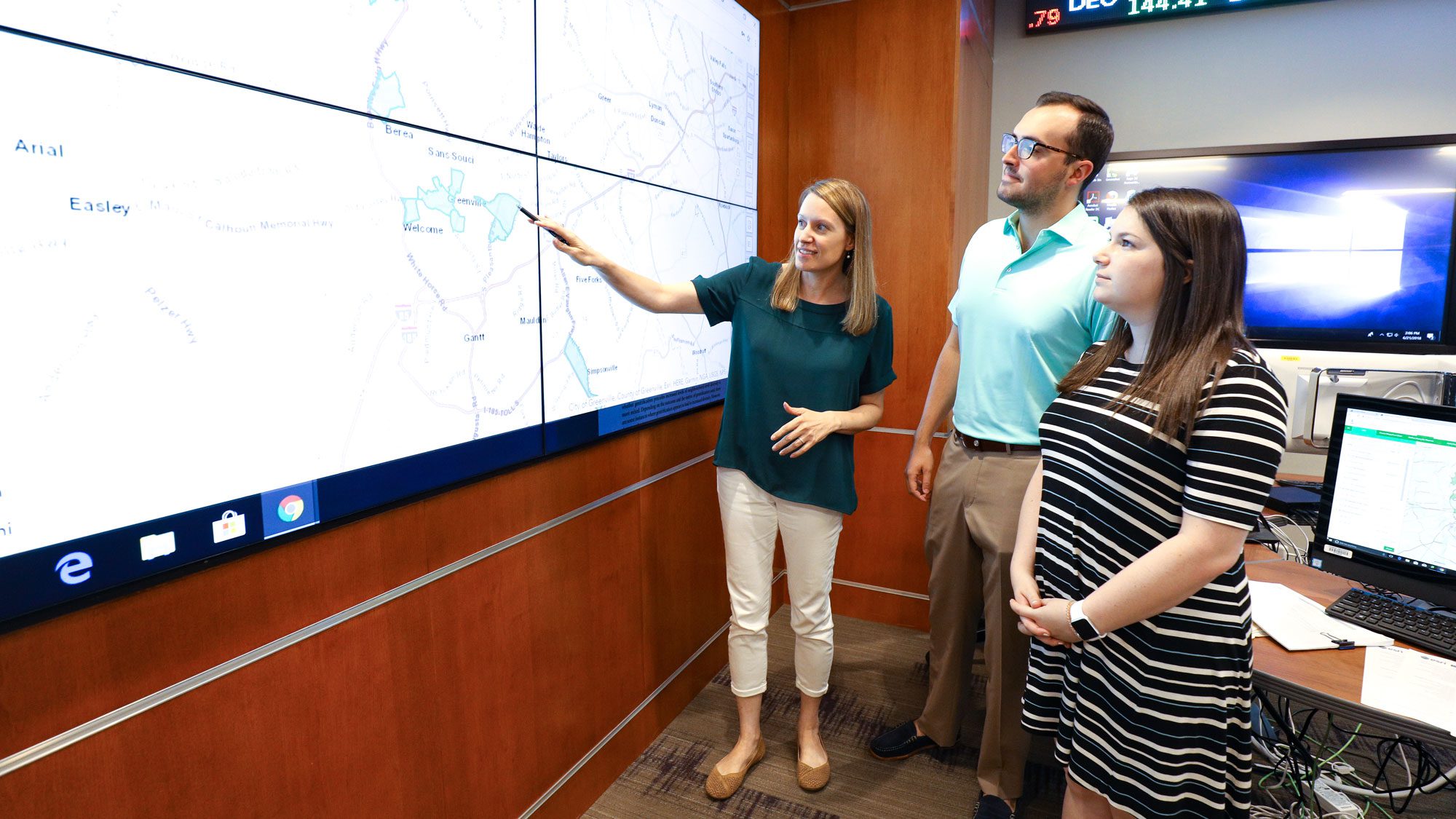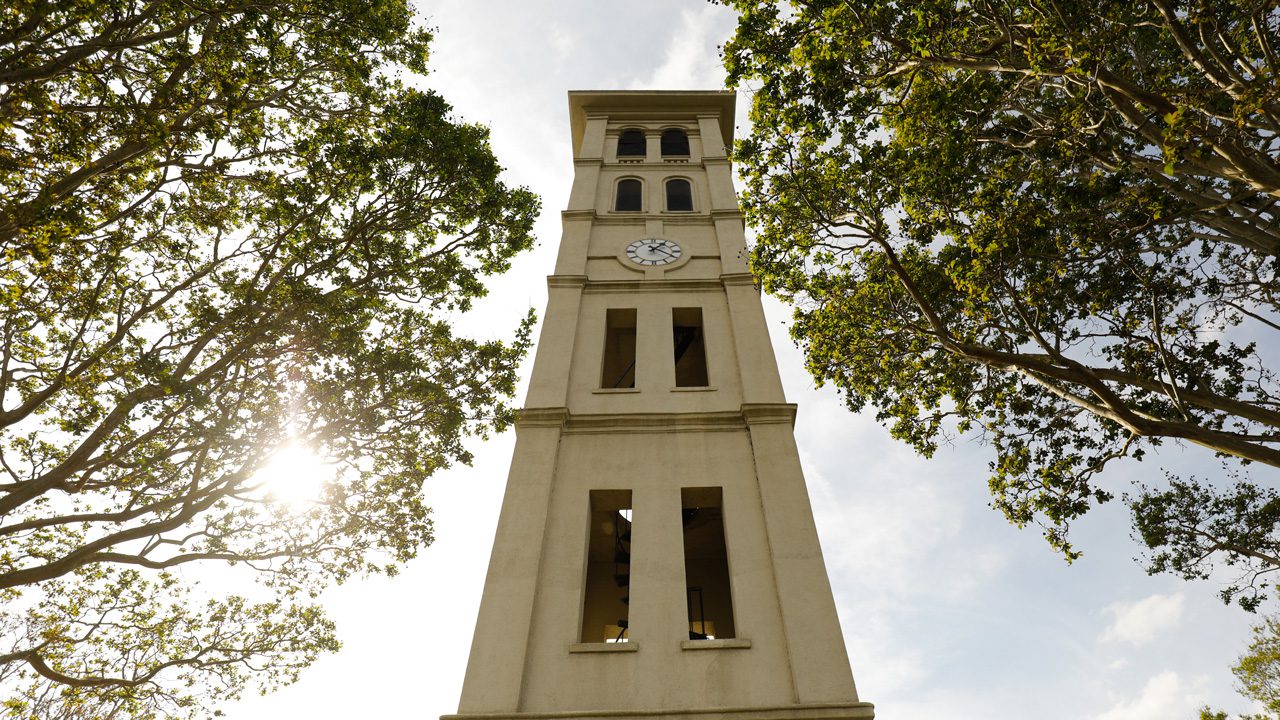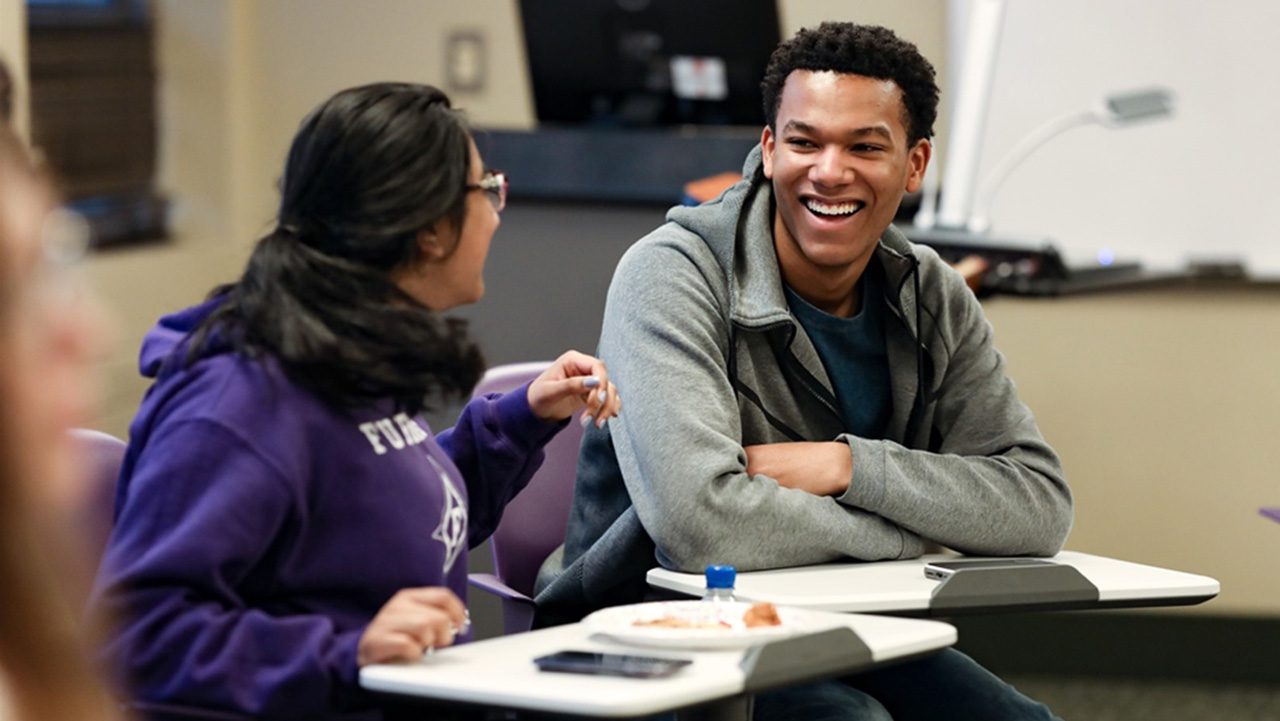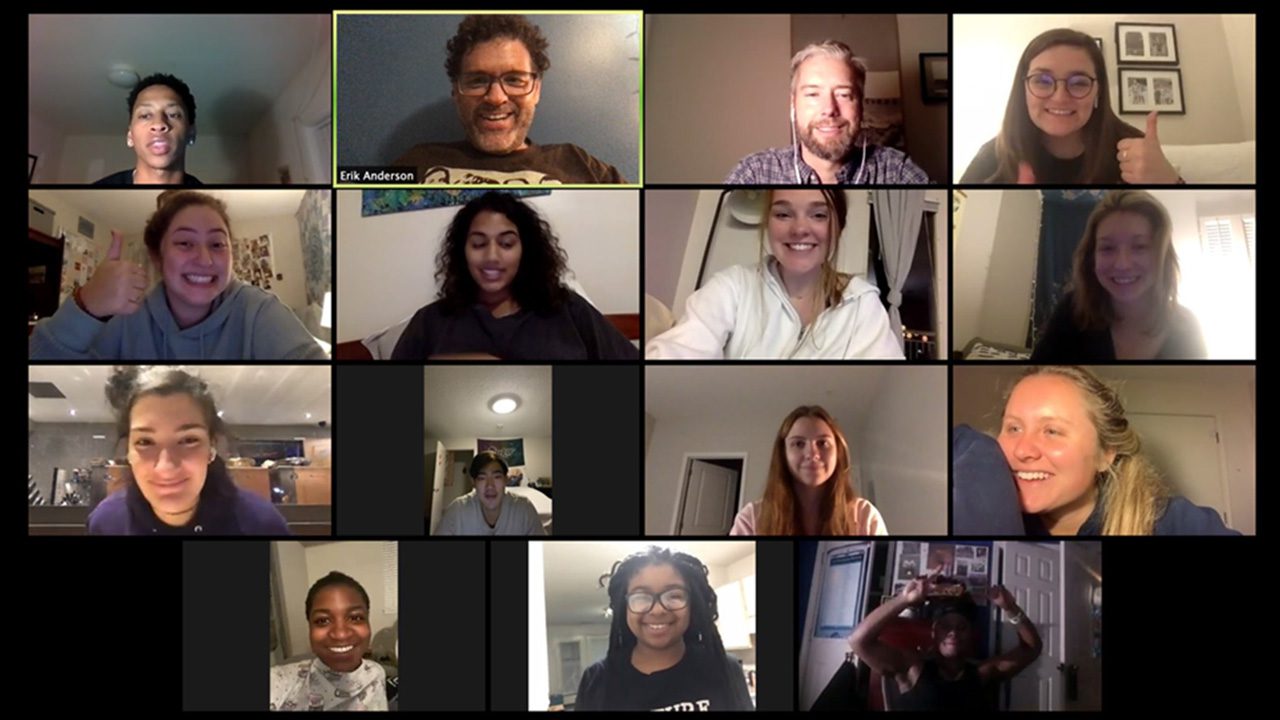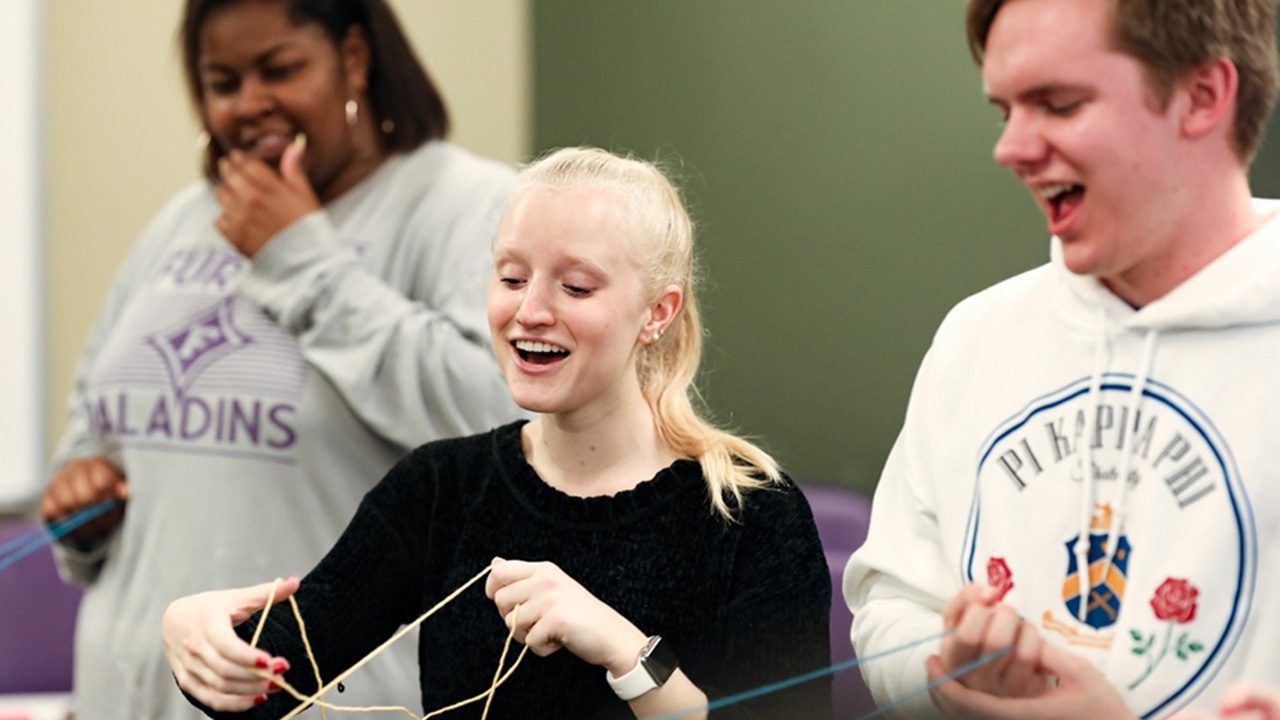In a diverse and polarized society, intentional dialogue about social group identities (e.g., race, class, gender, sexuality, religion, and, increasingly, political identity) is needed to promote mutual understanding, collaboration, and social change. The Intergroup Dialogue Program at Furman University was created so that students, faculty, and staff could learn how to have conversations about the identities that unite and divide us.
Introduction to Intergroup Dialogue (IGD 101) courses, half-semester (2-credit) classes co-taught by faculty and staff instructors, introduce students to the theory and practice of intergroup dialogue. Drawing on research in the fields of psychology, philosophy, political science, and sociology (among others), IGD 101 classes allow people from two or more social identity groups to voice to their deepest convictions and formative experiences while building skills for communicating across differences.
The learning objectives of IGD 101 classes are to:
- Cultivate a language and capacity for dialogue — deep listening, identifying assumptions, reflecting, and inquiring—in a diverse society;
- Reflect upon and learn about self and others as members of a social group(s) in the context of social systems;
- Explore the similarities and differences in experiences within and across social group memberships;
- Understand the impact of social identities on intergroup relations and inequalities;
- Develop skills to work productively in diverse groups, build coalitions, and utilize knowledge about identities, structures of inequality, and dialogic communication to build and support thriving communities.
The program offers numerous dialogue classes focusing on a variety of social identities in addition to peer-facilitated “Dins Dialogue” workshops and individual consultations. To learn how IGD might support your work, please request a consultation by emailing the program’s co-directors, Jocelyn Boulware Bruce and Claire Whitlinger.
